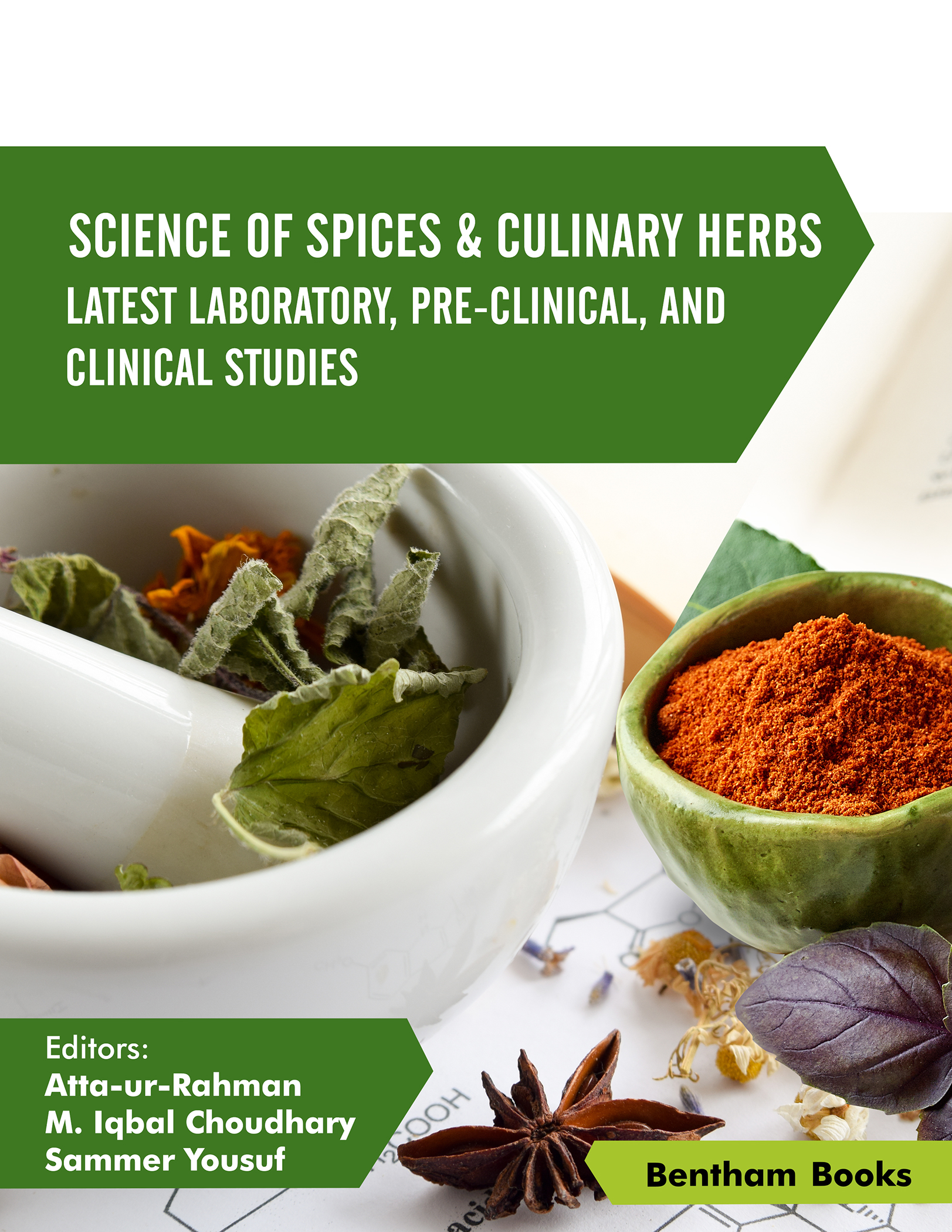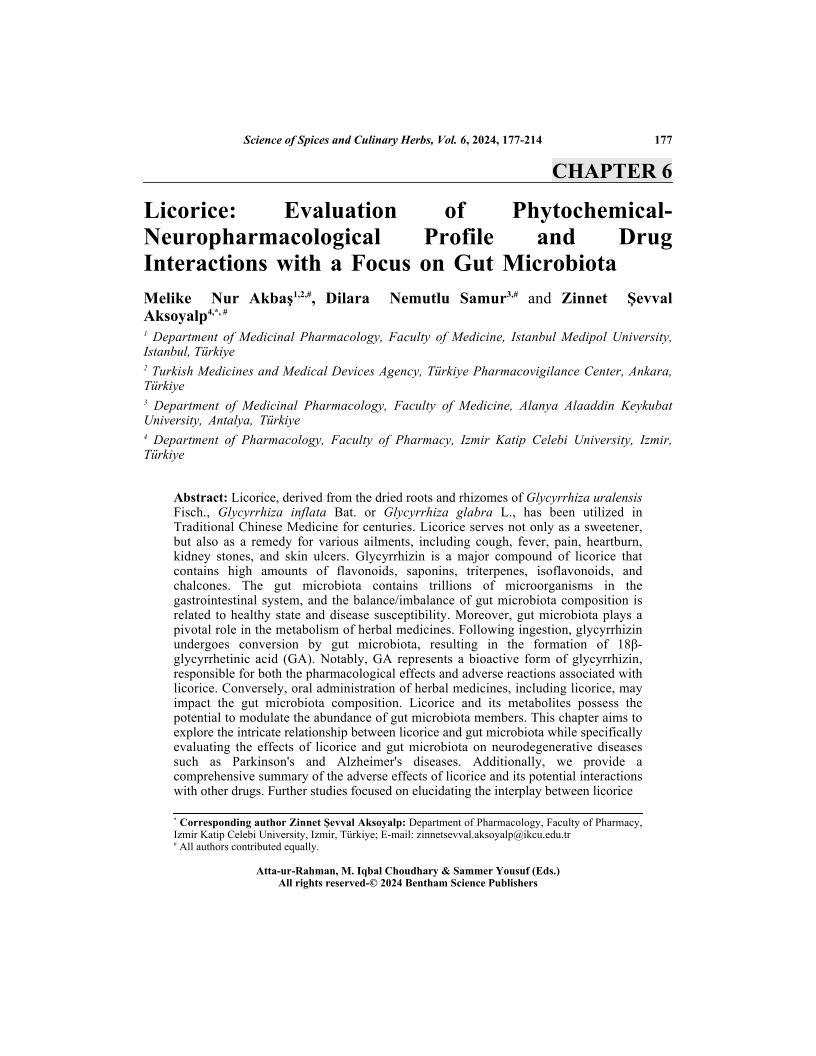Licorice: Evaluation of Phytochemical Neuropharmacological Profile and Drug Interactions with a Focus on Gut Microbiota

- Authors: Melike Nur Akbaş1, Dilara Nemutlu Samur2, Zinnet Şevval Aksoyalp3
-
View Affiliations Hide Affiliations1 Department of Medicinal Pharmacology, Faculty of Medicine, Istanbul Medipol University, Istanbul, Türkiye 2 Department of Medicinal Pharmacology, Faculty of Medicine, Alanya Alaaddin Keykubat University, Antalya, Türkiye 3 Department of Pharmacology, Faculty of Pharmacy, Izmir Katip Celebi University, Izmir, Türkiye
- Source: Science of Spices and Culinary Herbs - Latest Laboratory, Pre-clinical, and Clinical Studies: Volume 6 , pp 177-214
- Publication Date: August 2024
- Language: English
Licorice: Evaluation of Phytochemical Neuropharmacological Profile and Drug Interactions with a Focus on Gut Microbiota, Page 1 of 1
< Previous page | Next page > /docserver/preview/fulltext/9789815274370/chapter-6-1.gif
Licorice, derived from the dried roots and rhizomes of Glycyrrhiza uralensis Fisch., Glycyrrhiza inflata Bat. or Glycyrrhiza glabra L., has been utilized in Traditional Chinese Medicine for centuries. Licorice serves not only as a sweetener, but also as a remedy for various ailments, including cough, fever, pain, heartburn, kidney stones, and skin ulcers. Glycyrrhizin is a major compound of licorice that contains high amounts of flavonoids, saponins, triterpenes, isoflavonoids, and chalcones. The gut microbiota contains trillions of microorganisms in the gastrointestinal system, and the balance/imbalance of gut microbiota composition is related to healthy state and disease susceptibility. Moreover, gut microbiota plays a pivotal role in the metabolism of herbal medicines. Following ingestion, glycyrrhizin undergoes conversion by gut microbiota, resulting in the formation of 18βglycyrrhetinic acid (GA). Notably, GA represents a bioactive form of glycyrrhizin, responsible for both the pharmacological effects and adverse reactions associated with licorice. Conversely, oral administration of herbal medicines, including licorice, may impact the gut microbiota composition. Licorice and its metabolites possess the potential to modulate the abundance of gut microbiota members. This chapter aims to explore the intricate relationship between licorice and gut microbiota while specifically evaluating the effects of licorice and gut microbiota on neurodegenerative diseases such as Parkinson's and Alzheimer's diseases. Additionally, we provide a comprehensive summary of the adverse effects of licorice and its potential interactions with other drugs. Further studies focused on elucidating the interplay between licorice and gut microbiota will improve our understanding of the neuropharmacological profile and adverse effects of licorice, thus facilitating the development of novel treatment approaches using licorice.
-
From This Site
/content/books/9789815274370.chapter-6dcterms_subject,pub_keyword-contentType:Journal -contentType:Figure -contentType:Table -contentType:SupplementaryData105

